Introduction to an Extraordinary Adventure
Our two-week journey to Switzerland was nothing short of magical. At CERN, we found ourselves immersed in a global community of passionate students from around the world, surrounded by scientists and instructors who challenged and inspired us at every turn.
Week 1: Designing a Holistic Healthcare Ecosystem
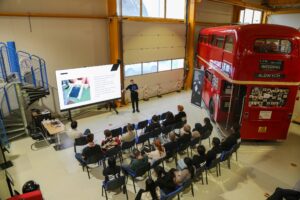
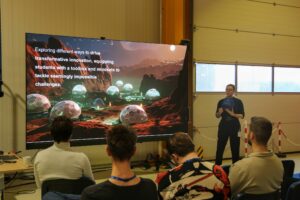
Our first week at CERN was a masterclass in complex system design, the I2Planet project, where we collaborated to design a healthcare unit for an entirely new planetary environment. This wasn’t just a theoretical exercise; it was a glimpse into humanity’s potential to create sustainable solutions in the most challenging conditions.
We were divided into specialized teams focusing on critical aspects of our healthcare unit: power & energy, health & wellbeing, patient care, water & sanitation and more. Each team worked simultaneously, constantly negotiating and adjusting our designs to work towards a seamless integration. The challenge was not just in creating individual systems, but in understanding how they would interact to form a cohesive, sustainable solution.
Each team member experienced the week differently:
Carson found the experience hectic, struggling with being introduced to the intricate physics for the first time and applying them in the next breath. The constant pivoting and delegation challenges felt like untangling a complex knot.
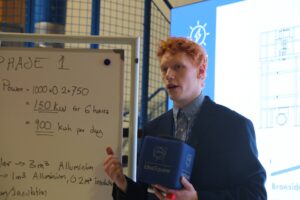
Rossy described it as life-changing, highlighting the value of working in multi-disciplinary teams and working on her communication strategies.
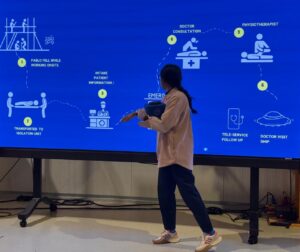
Eugenia appreciated the thoughtful interdisciplinary approach to each team, learning from diverse backgrounds and perspectives
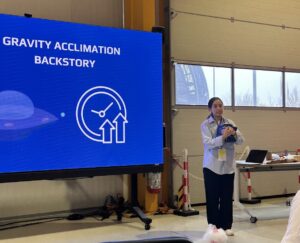
Cori was invigorated by the problem-solving process, focusing on how individual components could create a sustainable, interconnected system.
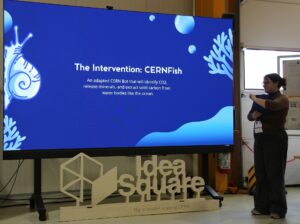
Week 2: Building Solutions With Rapid Prototyping
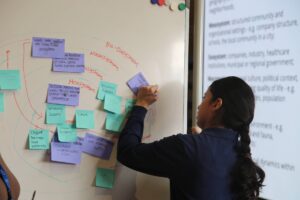
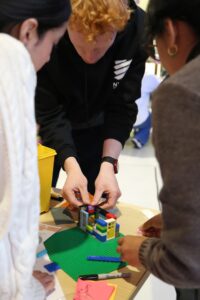
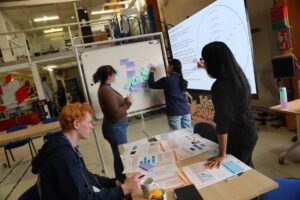
Building on our initial research about water-related challenges, we spent the week rapidly prototyping a solution to nearly every problem by exploring future scenarios, what-if thinking, deep tech and more. After accumulating nearly 10 potential ideas we closed in on four groundbreaking interventions:
- CERNFish: An adaptive bot designed to combat ocean acidification by identifying CO2, releasing minerals, and extracting solid carbon from water bodies.
- InfraSense: A non-invasive sensor technology that can diagnose water infrastructure conditions, create 3D images of potential flaws, and use advanced robotics for precise sewer system repairs.
- Drinking Buddy: A technology capable of sensing individual water quality in real-time.
- Smart Flushing: A system utilizing microbial fuel cells to generate energy while enabling water reuse.
We’re particularly excited to continue developing CERNFish and InfraSense, seeing them as potential game-changers in addressing global water and environmental challenges.
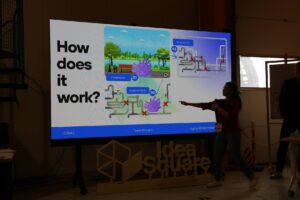
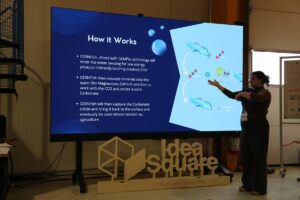
💫 Highlights Beyond the Technical
Our experience transcended pure technical achievement. Our instructors introduced us to futures planning, more on systems thinking, and inspired us to bridge scientific innovation with real-world applications. We also had incredible opportunities to network with scientists and innovators at CERN like Robert Caillou, co-creator of the World Wide Web, which opened our eyes to the broader potential of collaborative research. Additionally, We built bonds with the teams that joined us at CERN and made memories that will last a lifetime through shared travels, dinners, and infinite fun and conversations.
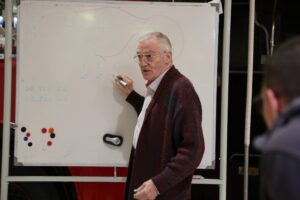
➡ Looking Forward: Towards 2050
As we move forward, we plan to take what we’ve learned during our 2-week intensive at CERN IdeaSquare and focus our efforts on refining CERNFish and InfraSense. We’re committed to developing technologies that can meaningfully address environmental challenges by 2050, turning our CERN experience from a transformative two weeks into a lasting contribution to global sustainability.
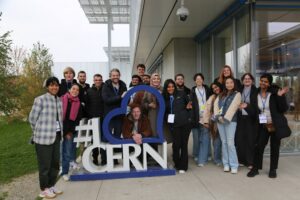
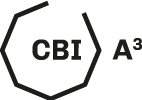
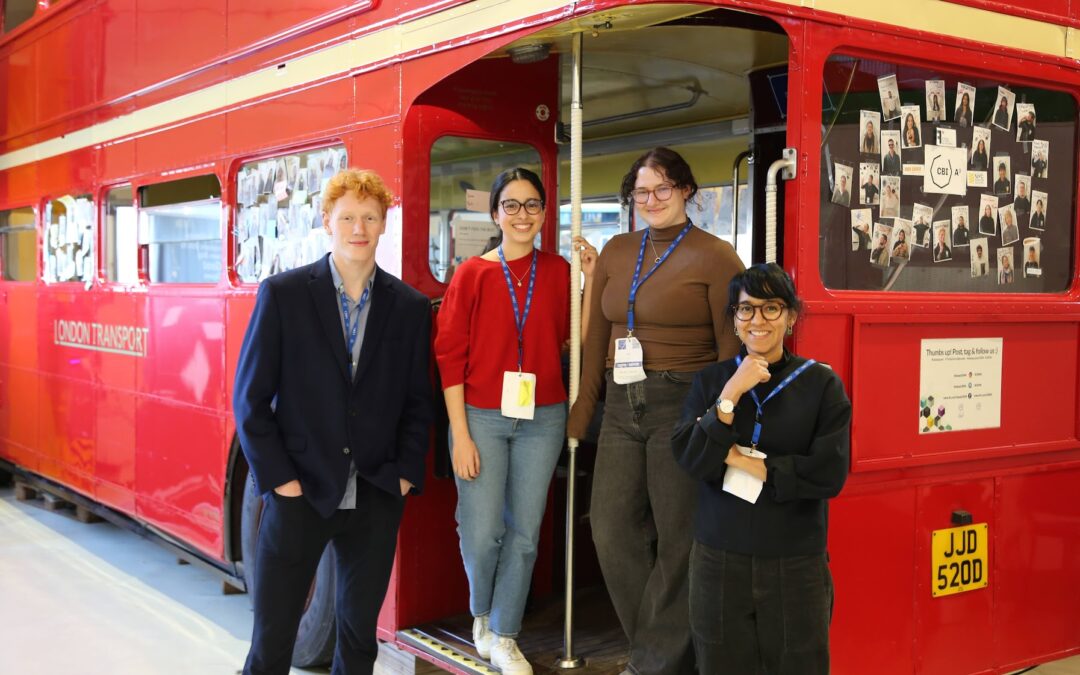
Recent Comments